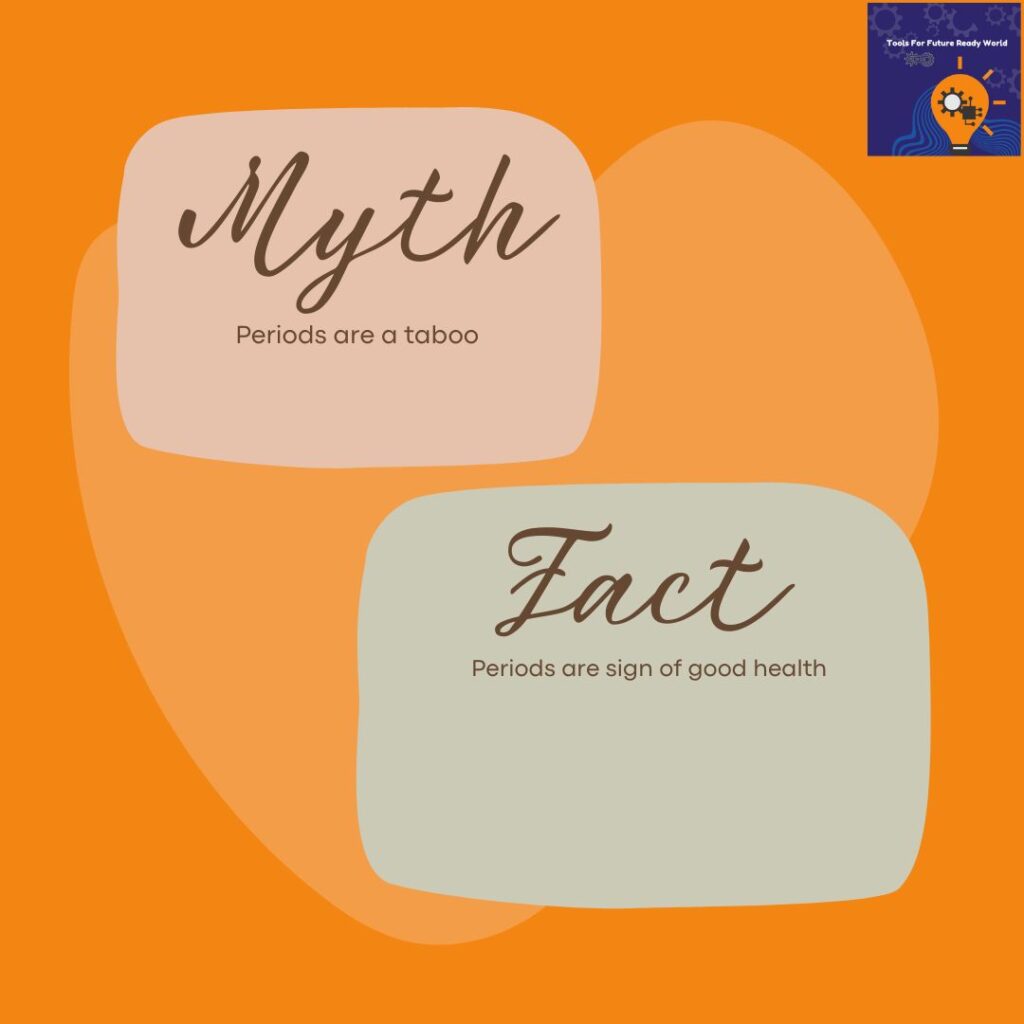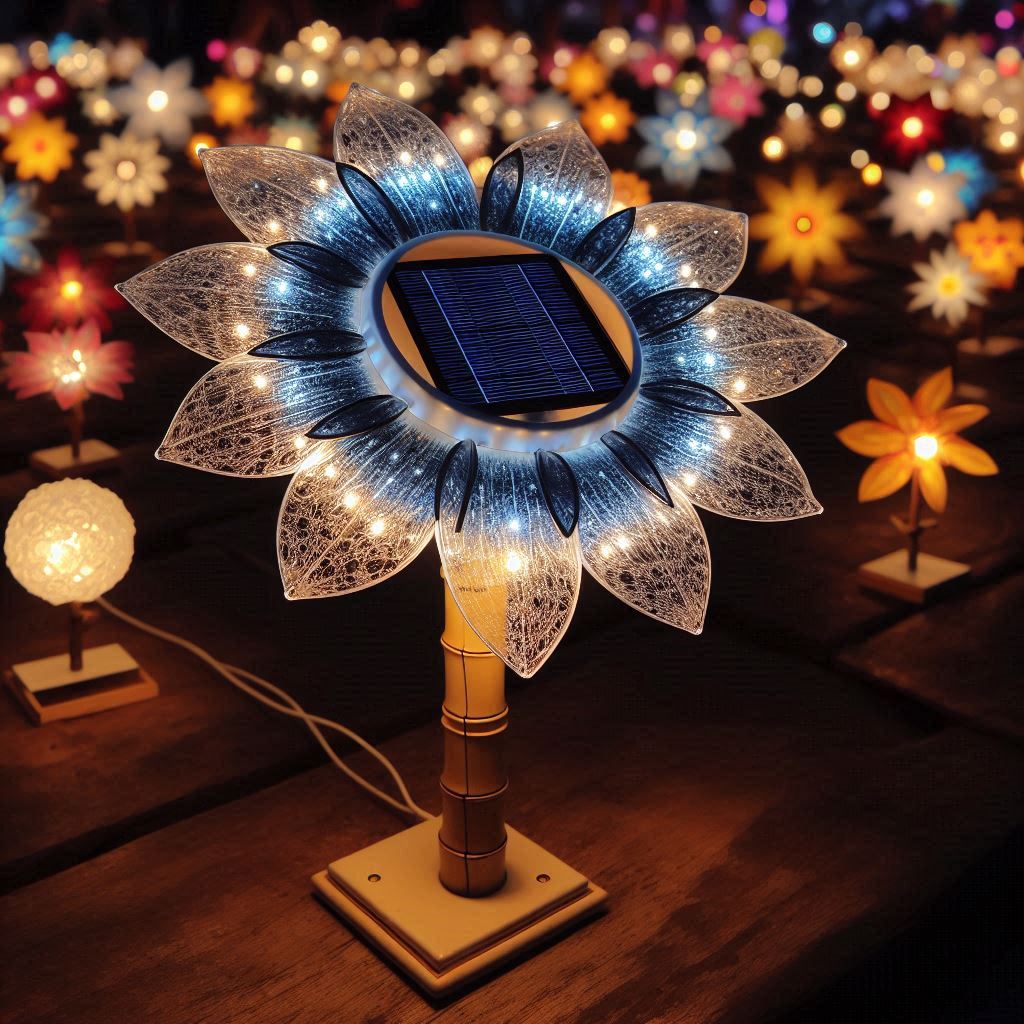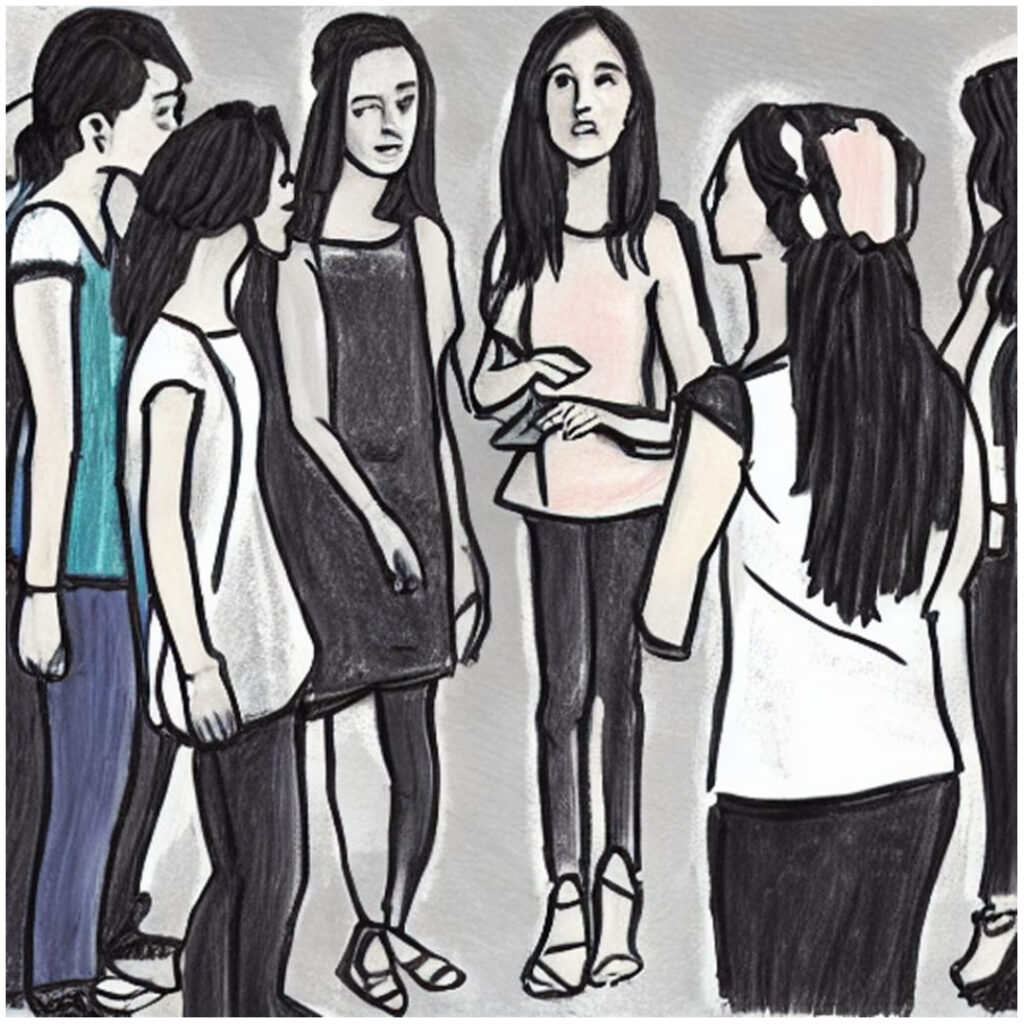Introduction
There are many myths and misconceptions about periods that can make menstruation seem like a mysterious and taboo topic. However, periods are a natural and healthy part of life for people with uteruses, and there is nothing to be ashamed or afraid of. In this blog post, we will debunk some of the most common period myths and provide you with accurate and reliable information about menstruation. Get ready to read “period myths debunked.”
- Myth #1: You cannot get pregnant during periods.
- Myth #2: You cannot swim or take a bath during your periods.
- Myth #3: You lose a lot of blood during your periods.
- Myth #4: You should avoid exercise during your periods.
- Myth #5: Your periods synchs up with other people who menstruate around you.
- Myth #6: You can’t use tampons if you are virgin.
- Myth #6: Do not socialize during periods.
- Myth #7: You should not visit any religious places.
- Infographics
- Conclusion
Myth #1: You cannot get pregnant during periods.
Fact: Although it is less likely, it is still possible to get pregnant during your period. This is because ovulation (the release of an egg from the ovary) can occur at any time during your menstrual cycle, and sperm can survive in the reproductive tract for up to five days. If you have sex during your period and ovulate soon after, you could conceive a baby. Therefore, it is important to use contraception whenever you have sex, unless you are trying to get pregnant.
Myth #2: You cannot swim or take a bath during your periods.
Fact: You can swim or take a bath on your period without any problems. Swimming can actually help relieve cramps and improve your mood, and taking a warm bath can soothe sore muscles and relax you. The only thing you need to consider is what kind of period product you want to use. Tampons, menstrual cups, and period-proof swimwear are all good options for swimming, while pads are not suitable as they will absorb water and become bulky and uncomfortable. If you take a bath, you can use any kind of period product or none at all, as the water pressure will temporarily stop the flow of blood.
Myth #3: You lose a lot of blood during your periods.
Fact: You may feel like you are bleeding a lot during your period, but the average amount of blood lost per cycle is only about 30 to 40 milliliters (or two to three tablespoons). Of course, some people may bleed more or less than others, depending on factors such as genetics, hormones, health conditions, and lifestyle. However, if you are soaking through more than one pad or tampon every hour for several hours in a row, or if your periods last longer than seven days, you may have heavy menstrual bleeding (also known as menorrhagia), which can cause anemia and other complications. In that case, you should see a doctor for diagnosis and treatment.
Myth #4: You should avoid exercise during your periods.
Fact: Exercise is actually beneficial for your health and well-being during your periods. Physical activity can help reduce cramps, bloating, mood swings, and fatigue by increasing blood circulation, releasing endorphins (the feel-good hormones), and regulating hormones. You don’t have to do anything too strenuous or intense if you don’t feel like it; even a gentle walk, yoga session, or dance class can make a difference. Just listen to your body and do what makes you feel good.
Myth #5: Your periods synchs up with other people who menstruate around you.
Fact: This is a popular belief that has been around for decades, but there is no scientific evidence to support it. The idea that people who menstruate can influence each other’s cycles through pheromones (chemical signals) or social cues is based on anecdotal observations and flawed studies that have been debunked by more rigorous research. The truth is that menstrual cycles vary from person to person and from month to month, depending on many factors such as age, stress, diet, illness, medication, and more. Therefore, it is normal to have some overlap or coincidence with other people who menstruate around you, but it is not due to any biological synchronization.
Myth #6: You can’t use tampons if you are a virgin.
Myth #6: You can’t use tampons if you are virgin.
Fact: Tampons have nothing to do with your virginity or sexual activity. Virginity is a social construct that means different things to different people and cultures, but it is not something that can be physically proven or lost by using tampons. Tampons are simply a type of period product that can be inserted into the vagina to absorb menstrual blood. They come in different sizes and shapes to suit different preferences and needs. Anyone who menstruates can use tampons if they want to; they just need to follow the instructions carefully and change them every four to eight hours to prevent infection or toxic shock syndrome (a rare but serious condition caused by bacteria).
Myth #6: Do not socialize during periods.
Fact: There is a common myth that women should not socialize during their periods. This myth is based on the idea that women are somehow unclean or contagious during their periods, and that they should therefore avoid contact with others. However, there is no scientific evidence to support this myth. In fact, socializing during your period can actually be beneficial. It can help you to feel more connected to others, and it can also help to take your mind off of your period symptoms.
If you are feeling up to it, there are many ways that you can socialize during your period. You can go out with friends, see a movie, or just spend time with your family. You can also participate in activities that you enjoy, such as reading, writing, or listening to music. Socializing during your period can help you to feel more relaxed and in control, and it can also help to boost your mood.
If you are experiencing any severe period symptoms, such as cramps, heavy bleeding, or headaches, you may want to avoid socializing until you feel better. However, if you are feeling well enough, there is no reason why you should not socialize during your period. In fact, socializing can actually be a great way to cope with your period symptoms.
Myth #7: You should not visit any religious places.
There is a common myth that women should not visit religious places during their periods. This myth is based on the idea that women are somehow unclean or impure during their periods, and that they should therefore avoid contact with sacred spaces. However, there is no scientific evidence to support this myth. In fact, there is no mention of this myth in any religious texts.
In many cultures, women are still prohibited from entering religious places during their periods. This can be a source of shame and isolation for women, and it can also prevent them from participating in important religious rituals.
There are a number of reasons why this myth may have originated. In some cultures, menstruation is seen as a sign of fertility, and it may have been feared that women would become pregnant if they entered a sacred space. Additionally, menstruation may have been seen as a sign of uncleanliness, and it may have been believed that women would contaminate the sacred space.
However, there is no basis for these beliefs. Menstruation is a natural bodily function, and it does not make women unclean or impure. In fact, menstruation is a sign of good health, and it is a necessary part of the reproductive cycle.
Infographics
The below statistics are from a 2019 report by the World Bank. They show that a significant number of girls around the world do not know about menstruation or have heard negative or harmful messages about it. This lack of knowledge and misinformation can have a negative impact on girls’ health, education, and well-being.
| Country | Percentage of girls aged 15-19 who do not know what a period is. | Percentage of girls aged 15-19 who have heard negative or harmful messages about menstruation. |
| Bangladesh | 28% | 84% |
| India | 44% | 72% |
| Kenya | 59% | 81% |
| Nigeria | 53% | 75% |
| Pakistan | 61% | 83% |
Conclusion
These are just some of the many myths that surround periods and menstruation. The best way to combat these myths is to educate yourself and others about the facts and realities of periods and to challenge the stigma and shame that often accompany them. Periods are nothing to be embarrassed or scared of; they are a sign of health and fertility and a part of life for millions of people around the world.



